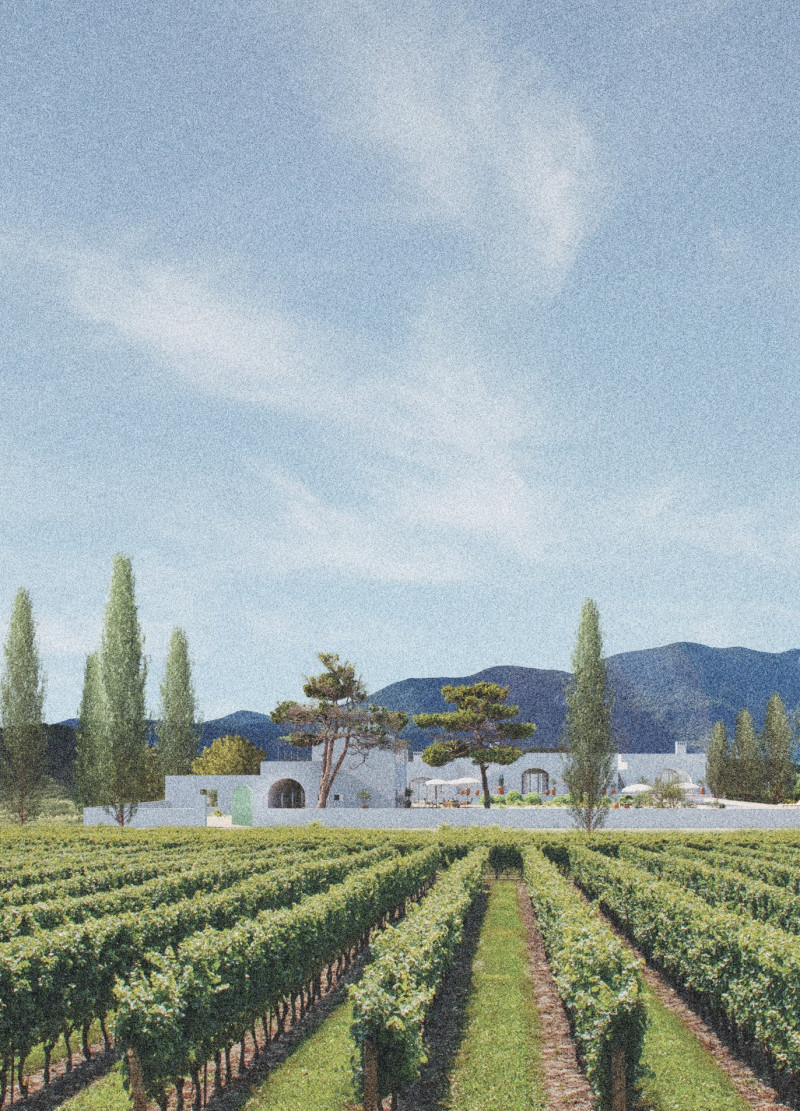5 key facts about this project
Tili Vini Winery is located in the heart of the countryside, designed to improve the wine tasting experience amid a landscape filled with vineyards and wild plants. The layout includes three main structures: a restaurant, guest houses, and a swimming pool. These parts are connected to encourage accessibility and foster a sense of community among visitors.
Architectural Concept
The design showcases a balance between the built environment and nature. A central garden acts as a gathering space for guests, promoting social interactions. This layout allows for significant visual connections between the winery's components and the surrounding landscape, enhancing the experience for all who visit.
Sustainability Strategies
Sustainability is an important aspect of the approach, following a "Reuse, Reduce, Recycle" philosophy. The design takes advantage of the existing plot and incorporates the primary building. This strategy makes efficient use of resources while reducing waste. By preserving the natural setting, the project reflects a commitment to ecological responsibility.
Material Choices
Terracotta ceramics feature prominently in the design, creating visual and tactile links throughout the winery. This choice supports sustainability goals and aligns with local building traditions. Using regional materials helps improve durability while allowing the structures to blend with the environment.
Guest House Design
The guest houses are strategically placed to connect occupants with the natural surroundings. Each unit benefits from plenty of natural light and spacious designs, offering comfort to visitors. This thoughtful arrangement enhances the connection between indoor spaces and the external environment, deepening the overall experience of staying at the winery.
An expansive central garden stands out as a focal point, providing a tranquil setting that encourages conversation among guests while highlighting the beauty of the nearby vineyards.























































